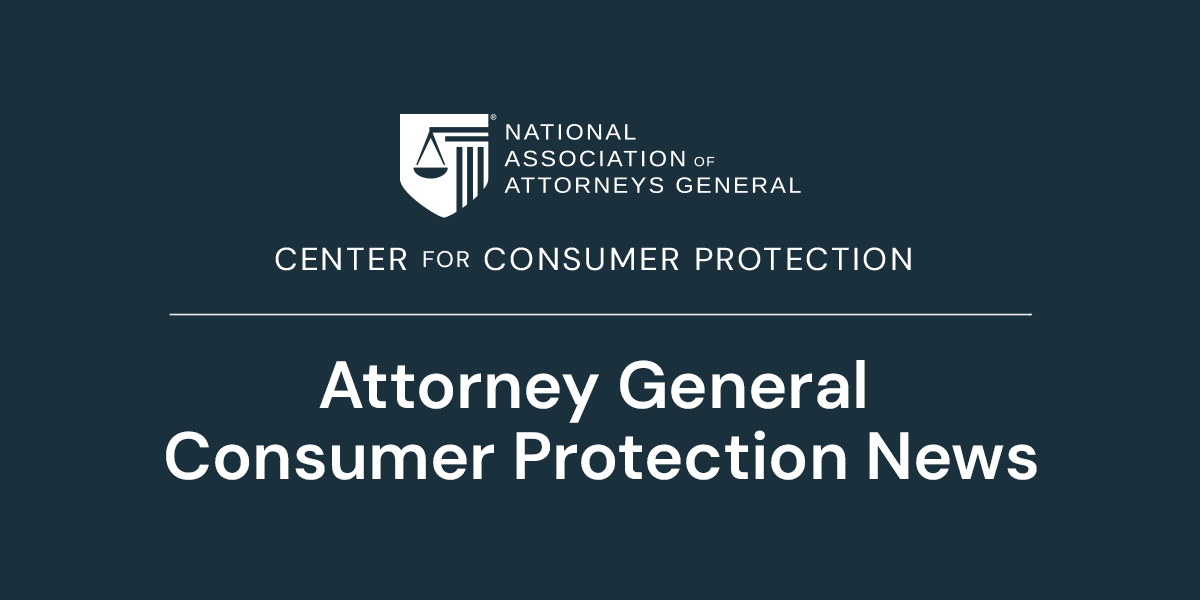This article was originally published in the February 2020 edition of the NAGTRI Center for Consumer Protection Monthly newsletter.
Competition is a vital component in the global market. Technology is changing the way we learn and gather information about products and services. In the “old days,” word-of-mouth was one factor influencing purchase decisions, i.e., your neighbor tells you how happy she is with her new lawn mower. These days, if you are a consumer who does proper due diligence, you are likely to read and compare online reviews before making a purchase. Depending on the product or service involved, online reviews, ratings and popularity of the product or service will likely influence and be a persuasive factor in your decision to buy. Despite its convenience, this new type of “referral” has given rise to some cutting-edge issues within the realm of consumer protection. Attorneys in the consumer protection field are accustomed to handling the more common cases such as deceptive “bait and switch” sales techniques. However, a recently enacted federal law opens another avenue for attorneys general to pursue deceptive advertising practices in a trending but perhaps less familiar area.
Recently, the Federal Trade Commission (“FTC”) has filed unprecedented legal actions against companies for using unfair or deceptive business practices in connection with online reviews and social media influencers. The complaints are brought under the Federal Trade Commission Act (“FTC Act”)1 and the Consumer Review Fairness Act (“CRFA”).2
Like many state consumer protection laws, the FTC Act prohibits and makes it illegal for businesses and individuals to use “unfair methods of competition” and “unfair or deceptive acts or practices in or affecting commerce.”3 The CRFA was passed by Congress in 2016 to prevent businesses from using consumer-related contracts which contain non-disparagement terms and conditions. The CRFA also provides that contracts that impede consumer reviews are illegal and void if the contract prohibits or restricts the ability of the consumer to engage in a covered communication or imposes a penalty or fee against an individual for engaging in a covered communication.4 The CRFA defines “covered communication” as a “written, oral, or pictorial review, performance assessment of, or other similar analysis of, including by electronic means, the goods, services, or conduct of a person who is party to a form contract….”5 The term “form contract” is defined as “a contract with standardized terms (i) used by a person in the course of selling or leasing the person’s goods or services; and (ii) imposed on an individual without a meaningful opportunity for such individual to negotiate the standardized terms.”6
The CRFA is enforced by the FTC but allows state attorneys general to bring legal actions and enforce the CFRA.7 However, two specific restrictions apply when state attorneys general bring a claim under CRFA. First, the state must notify the FTC in writing that the attorney general intends to bring a civil action under the CRFA.8 Second, states may not bring an action against a defendant if the FTC has already done so, and the matter must be filed in federal court.9 Despite the restrictions, recent enforcement of the CRFA and the FTC Act by the FTC is laying ground work for states to consider new laws to protect consumers’ ability to share truthful opinions, promote transparency, and hold accountable businesses and individuals who utilize deceptive means to influence consumers’ purchases.
For example, in May 2019, the FTC filed a complaint against A Waldron HVAC, LLC, alleging that the company issued form contracts with terms and conditions which prohibited consumersfrom filing complaints against the company with the Better Business Bureau.10 The terms and conditions imposed penalties consisting of double the contract price and attorney’s fees if the consumer violated the restrictive provision by filing a complaint against the company with the Better Business Bureau.11 The FTC alleged that these provisions were unfair and deceptive business practices that CRFA renders void and illegal.12 Companies cannot prohibit or punish consumers who post and share their truthful opinions about the company’s products or services. The case settled by way of an order providing, in part, that the company is enjoined from issuing or enforcing “Review-Limiting Contracts.”13 The order also provided that the company must notify consumers that they have a right to post honest reviews.12
The CRFA, along with the FTC Act, are just some of the means that the FTC is using to promote transparency and enjoin businesses from using deceptive advertising techniques to boost their online presence. There are also emerging issues involving fake online reviews and manipulation of social media influencers.
In October 2019, the FTC filed a complaint against Sunday Riley Modernskin, LLC and the company’s owner for posting fake reviews to bolster the sales of its skin care products.14 The company marketed its products at Sephora stores and Sephora.com, which is a chain of personal care and beauty stores. Consumers have the option to write and rate products on Sephora.com. The FTC’s complaint alleged that the company’s owner encouraged its employees to create fake accounts and post reviews of the company’s products on Sephora.com in order to promote sales. The fake reviews posted by the company and its employees were posted to mislead consumers into believing that the reviews “reflected the independent experiences or opinions of impartial ordinary users of the products.” The FTC alleged that “after Sephora removed the fake reviews, the company suspected this was because Sephora recognized the reviews as coming from their IP addresses.”12 The company owner proceeded to obtain a Virtual Private Network account to conceal the IP address so the employees could continue to manipulate the reviews and “dislike” negative reviews. The FTC’s complaint charged the company with making false or misleading claims that the fake reviews reflected the opinions of ordinary users and engaged in deceptive conduct by failing to disclose to consumers that the reviews were fabricated, in violation of the FTC Act.12 A consumer is obviously less likely to consider a cosmetic product if the consumer is informed that the reviews are biased and are written by the employees of the company. The case was settled through a consent agreement, which provides in part that, the company is enjoined from endorsing or reviewing a product or providing a review for a product which misrepresents that the endorser or reviewer is an independent or ordinary user of the product.15
In February 2019, the FTC filed a complaint against a company for paying a third party to write fake reviews about its weight-loss supplement.16 The company, Cure Encapsulations, Inc., sold its product online and represented to the public that its reviews were written by actual purchasers, when in reality the reviews were fabricated. The paid-for endorsements were posted on Amazon.com and gave the product a five-star rating.12 The FTC stated that the fabrication of consumer reviews constitutes deceptive advertising in violation of the FTC Act.17 A consumer is less likely to consider a weight-loss product if the consumer is informed that the reviews are paid for and are not written by actual purchasers. The case settled by way of a stipulated order for permanent injunctive relief prohibiting the company from violating the FTC Act, and requiring the payment of monetary relief.18
Aside from taking actions against companies for engaging in deceptive tactics to persuade consumers to buy their products, those who perpetuate deceptive advertising and profit from selling fake social media reviews and indicators must also be held accountable. In 2013, New York’s attorney general held search engine optimization (“SEO”) companies accountable for selling and posting fake reviews as a means to inflate and bolster businesses’ online reputation.19 SEO companies help manage, repair and accentuate businesses’ online reputation. New York’s investigation revealed that the SEO companies advertised for and paid “freelance writers” to post fake reviews on websites such as Yelp, Google Local, and Citysearch. The companies agreed to stop the practice and to pay more than $350,000 in penalties.12
In a more recent case, the FTC filed a complaint against Devumi, LLC for selling fake indicators on social media platforms to third-parties who wished to inflate their social media influence.20 The complaint, which was filed on October 18, 2019, alleged that some of these third parties included financial institutions, marketing and advertising agencies, actors, athletes and musicians.12 The complaint stated that “indicators of social media influence are important metrics.” Further, it alleged that using fake social media influencers in social media platforms to inflate businesses’ followers, views, and subscribers undermines consumers’ trust in information that influencers provide and is deceptive conduct.12 Social media indicators reflect what is popular and trending and may be an integral component in consumers’ decision-making. Enjoining these companies from providing the means for the deception is a strategic method to advance transparency and educate consumers. The case settled through an order providing, in part, that the company is enjoined from selling or assisting others in selling social media influence to users of third-party social media platforms and prohibiting the company from making misrepresentations, or assisting others in making misrepresentation, about their social media influence.21
Whether it is online reviews, subscribers, likes, ratings, followers, etc., social media has become a source of information and an influential platform on which consumers rely in their decisions to buy a good or service. And despite its convenience, it is apparent that some businesses are willing to partake in dishonest strategies to simply secure a sale. Attorneys who practice within the consumer protection realm focus on safeguarding and educating the public against bad businesses and by enjoining unfair and deceptive business practices. The CRFA and the FTC’s recent legal actions concerning deceptive business practices in social media illustrate what we can use to ensure that new and innovative methods of advertising encourage transparency, competition and honesty and eventually put a stop to unfair and deceptive trade practices on social media platforms.
- 15 U.S.C. § 45. [↩]
- Pub. L. No. 114-258, 130 Stat. 1355 (codified at 15 U.S.C. § 45b). [↩]
- 15 U.S.C.A. § 45(a)(1). [↩]
- 15 U.S.C. § 45b. [↩]
- 15 U.S.C. § 45b (a)(2). [↩]
- 15 U.S.C. § 45b (a)(3). [↩]
- 15 U.S.C. § 45b (e). [↩]
- 15 U.S.C. § 45b (e)(2). [↩]
- 15 U.S.C. § 45b (e)(5). [↩]
- https://www.ftc.gov/system/files/documents/cases/182_3077_-_waldron_complaint.pdf [↩]
- Id. [↩]
- Id. [↩][↩][↩][↩][↩][↩][↩][↩]
- https://www.ftc.gov/system/files/documents/cases/c-4680_182_3077_-_waldron_decision_and_order.pdf [↩]
- https://www.ftc.gov/system/files/documents/cases/192_3008_sunday_riley_complaint_0.pdf [↩]
- https://www.ftc.gov/system/files/documents/cases/192_3008_sunday_riley_acco_0.pdf [↩]
- https://www.ftc.gov/system/files/documents/cases/quality_encapsulations_complaint_2-26-19.pdf [↩]
- https://www.ftc.gov/system/files/documents/cases/quality_encapsulations_proposed_order_2-26-19.pdf [↩]
- https://www.ftc.gov/system/files/documents/cases/172_3113_cure_encapsulations_final_order_6-3-19.pdf [↩]
- https://ag.ny.gov/press-release/2013/ag-schneiderman-announces-agreement-19-companies-stop-writing-fake-online-reviews [↩]
- https://www.ftc.gov/system/files/documents/cases/devumi_complaint.pdf [↩]
- https://www.ftc.gov/news-events/press-releases/2019/10/devumi-owner-ceo-settle-ftc-charges-they-sold-fake-indicators [↩]






